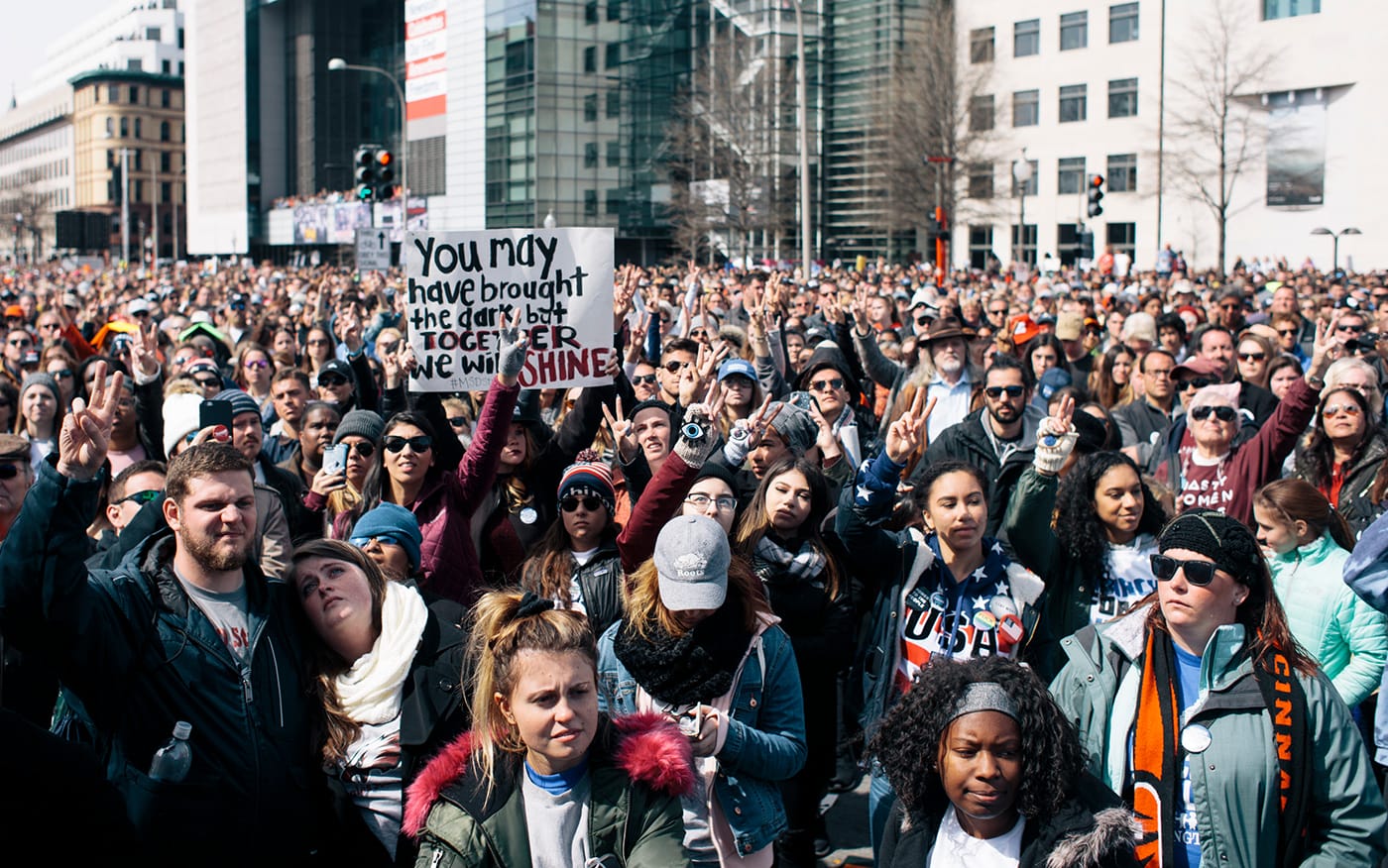
Meet 10 Young Leaders Fighting for a Safer Future
Two years ago this week, more than 800,000 people flooded the streets of Washington DC for the March For Our Lives. Sister demonstrations popped up worldwide.
On March 24, 2018, students from Parkland, Chicago, Los Angeles, and cities all across the country took the stage to share their heartbreaking, intimate experiences with gun violence—and demand change.
Americans were all too familiar with tragedy, but this level of momentum felt new. March For Our Lives was one of the largest political demonstrations in recent history, and it was organized by students…in about a month.
Since the March For Our Lives, a wave of courageous young people has taken the national stage. Every one of them is determined to create a future free from the fear of gun violence, and undeterred by any obstacles in their paths.
Check out just a few of these young leaders below.
Yasmine Mabene— San Diego, California
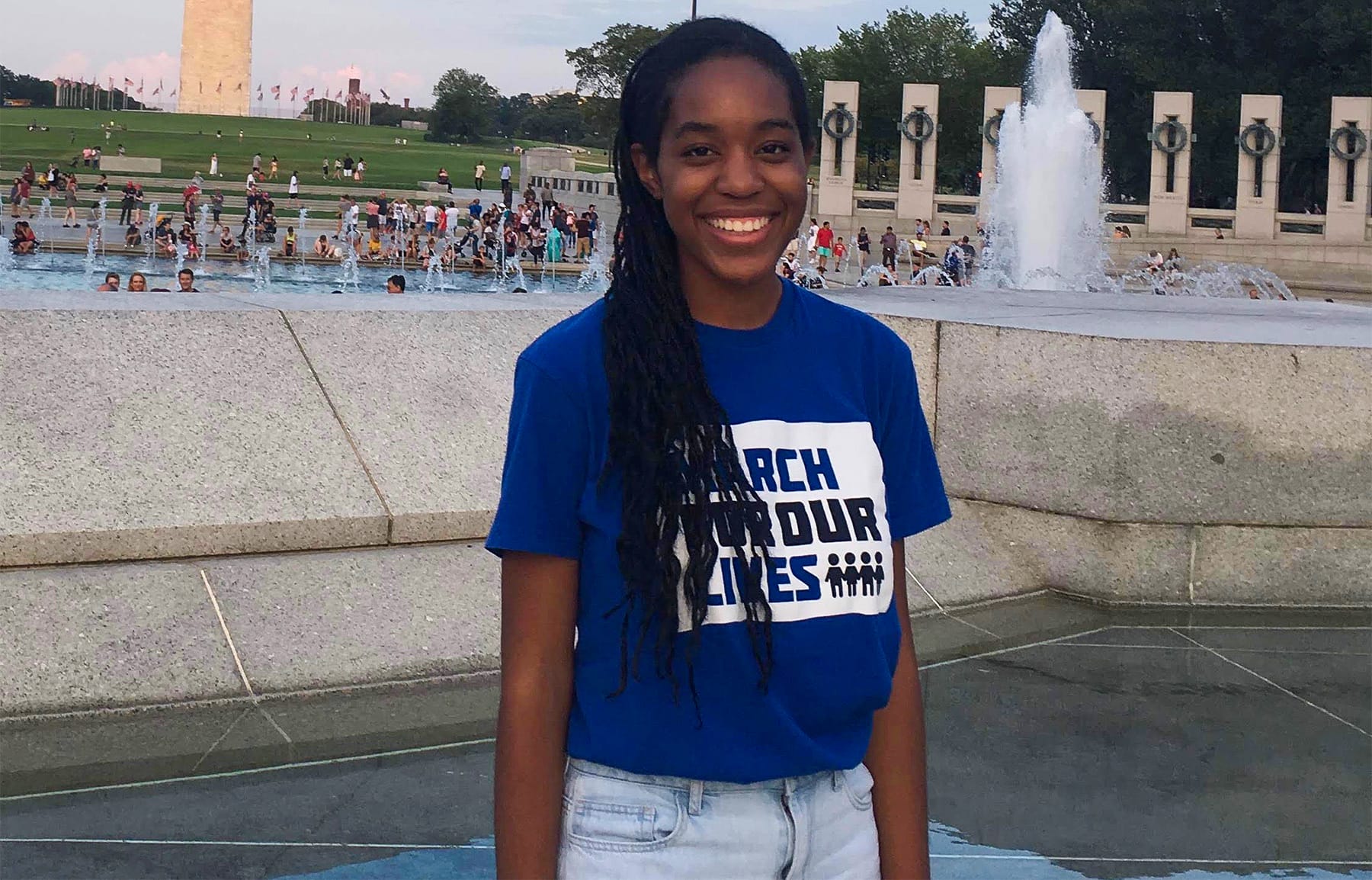
Yasmine Mabene is a Giffords Courage Fellow and State Director of March for Our Lives California. She has organized lobby days, town halls, and community events to shift public attention onto the gun violence epidemic and fight for legislative change. Yasmine has lobbied at both her governor’s office and on Capitol Hill and works locally with her Team Enough chapter. She advocates for youth empowerment and promotes civic engagement within her community by hosting voter registration drives.
“Where gun advocates see lack of regulations as preservation of their ‘freedom,’ I see chaos as bullets fly through buildings and children lie on the floor.”
Gracie Pekrul — Simi Valley, California
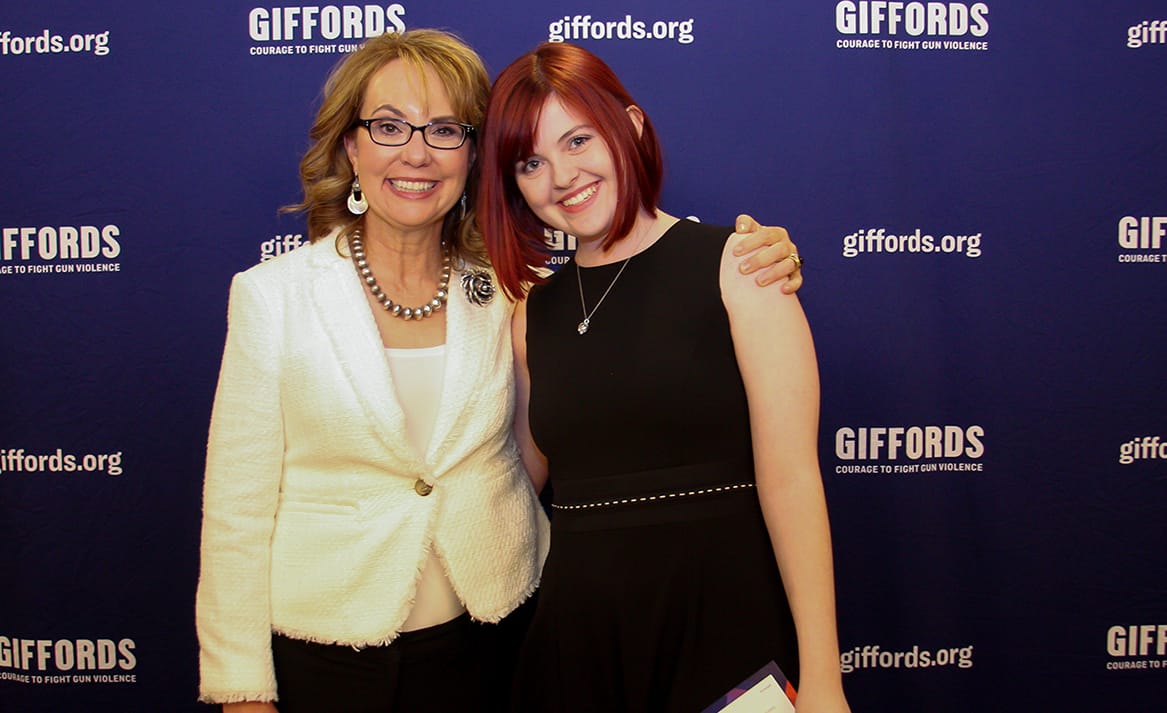
Gracie is a student activist, a prolific artist, and the director of March For Our Lives Ventura County. Her portraits of the Parkland shooting victims and of former Congresswoman Gabrielle Giffords went viral and have been shared at dozens of gun violence prevention protests. She uses art to bring awareness to gun violence and to help bring healing to victims, survivors, and family members. In January of 2020, Gracie organized an art activation with March for Our Lives in the Senate, where she delivered her art to all 100 Senators and protested in Mitch McConnell’s office with other young gun violence prevention leaders. She is also a 2019 Giffords Courage Fellowship alumnus.
“When I saw all these students coming out strong and making these powerful statements about how we have to end gun violence, I knew I had to be a part of this message and I have to do something about this.”
Aalayah Eastmond — Parkland, Florida
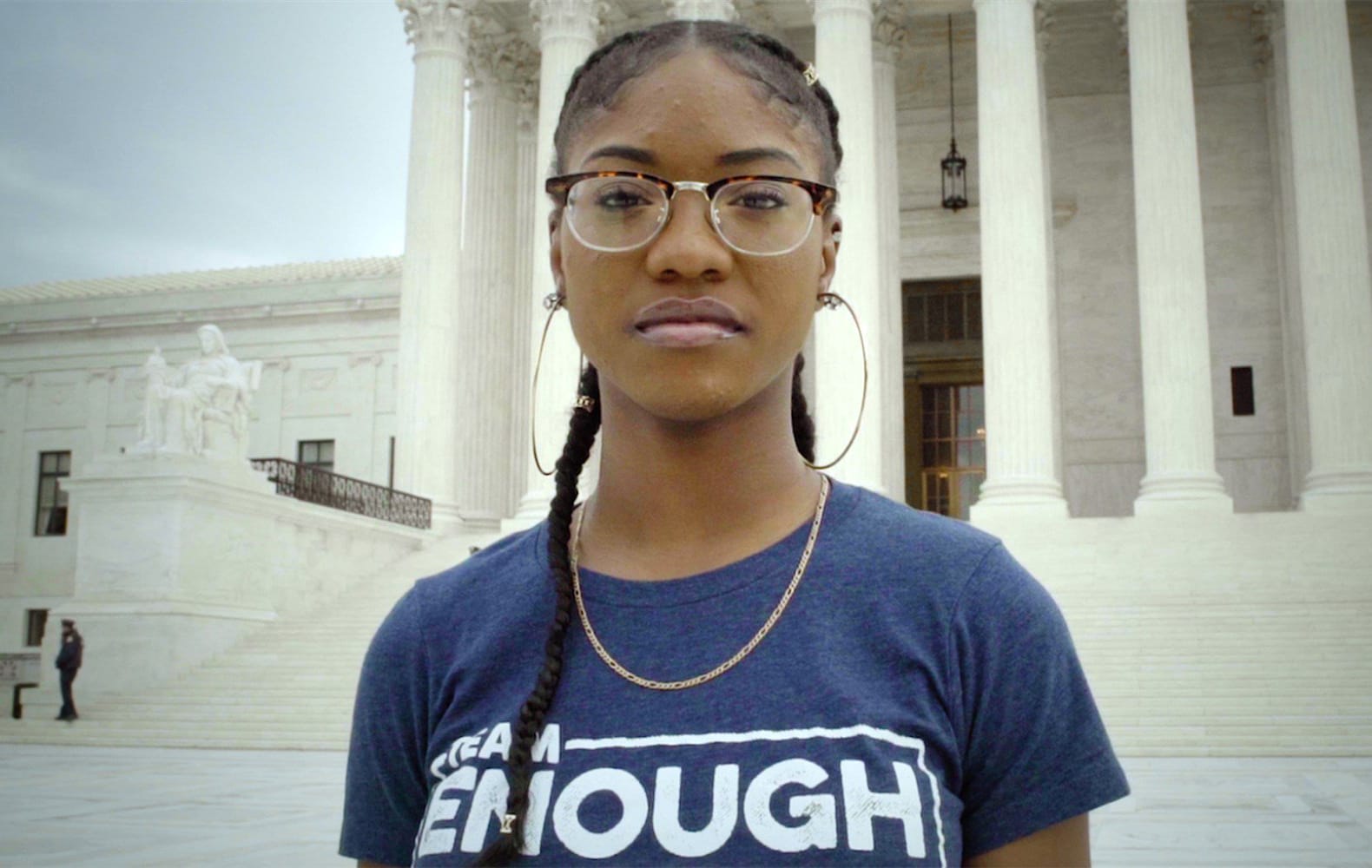
Aalayah Eastmond came close to being shot at Marjory Stoneman Douglas High School in Parkland, Florida. Since that horrific day, she has devoted herself to calling attention to the epidemic of gun violence in underserved communities. Aalayah helps lead up Team Enough, which “mobilizes young people to change the gun violence landscape in our country.” In February, Aalayah testified in support of gun safety measures to the House Judiciary Committee— the first House hearing on gun violence prevention in more than a decade.
“Gun violence is an everyday occurrence and the vast majority of affected communities are minority. We have to do something to stop the gun violence that has become an every day threat.”
Tre Bosley — Chicago, Illinois
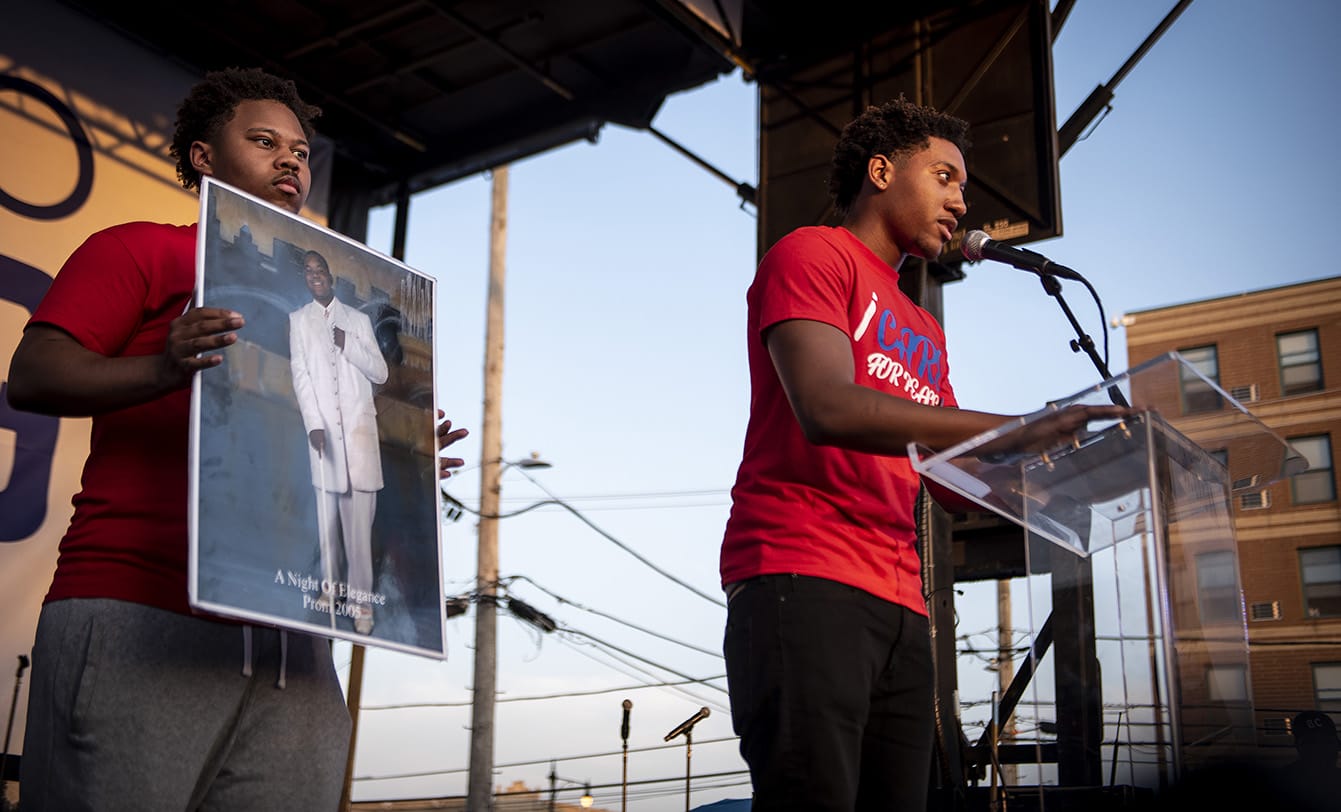
After Tre Bosley’s brother Terrell was shot and killed in front of a church in Chicago, he became an outspoken advocate against urban gun violence. Tre spoke at a CNN town hall with President Obama in 2016 about poverty and gun violence and also gave a passionate speech at the March For Our Lives in DC last year.
“It’s time to care about all communities equally. It’s time to stop judging some communities as worthy and some communities as unworthy. It’s time to stop judging youth that look like or my brother, that come from impoverished communities, any different than anyone else. It’s time for America to notice that everyday shootings are everyday problems.”
Ashley Baez — Parkland, Florida
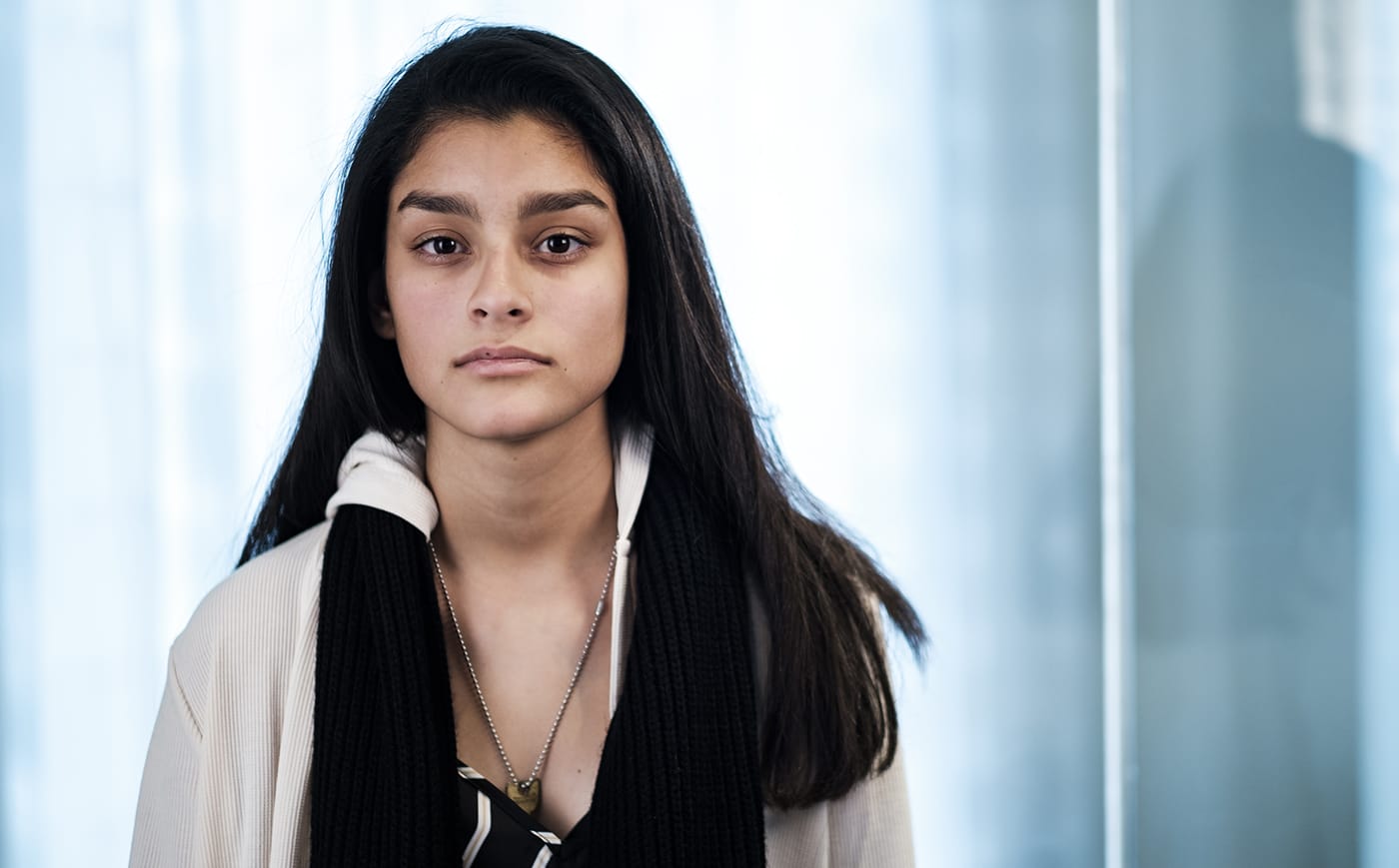
Ashley Baez was shot in the right leg in the Parkland shooting. Four weeks later, she flew to Washington DC to attend the March For Our Lives. Her injuries were extreme. She’s had multiple surgeries and has more to go, but she isn’t letting that hold her back. A Giffords Courage Fellow alumna, Ashley has travelled to DC several times to advocate for stronger gun safety laws.
“I’m hoping that the politicians realize what we’re going through and how this has affected our lives heavily,” she said. “I just want our schools to be safer so we don’t have to be afraid every second.” [ Miami Herald ]
Edna Chavez — Los Angeles, California
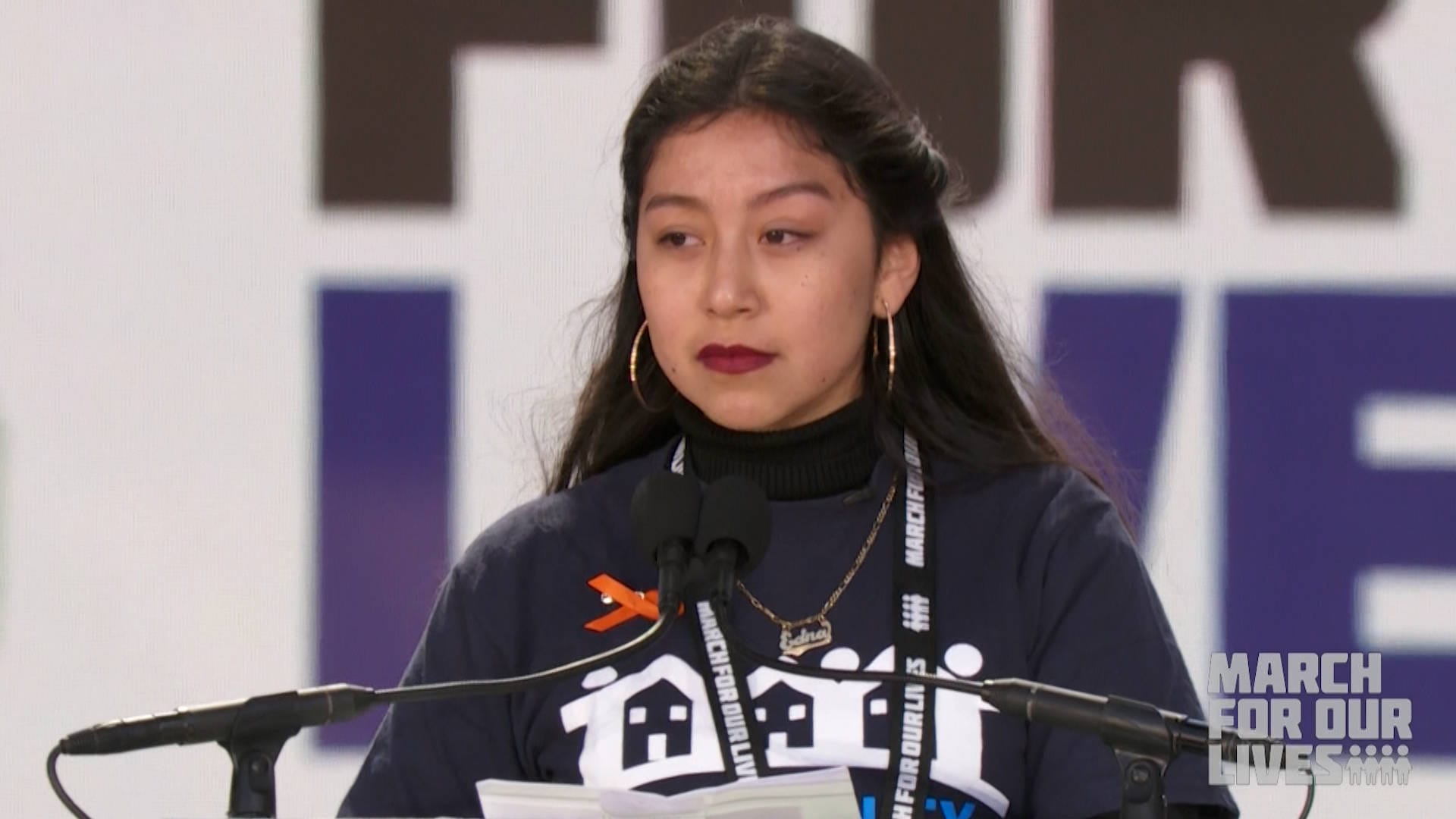
When Edna Chavez took the stage at the March For Our Lives, she gave a speech no one would ever forget. She described growing up under the threat of daily gun violence in South Los Angeles, where she watched her brother, Ricardo, get shot and killed. A member of the Community Coalition, Edna fights for social justice and violence reduction in her community.
“I have lived in South L.A. my entire life…I learned to duck from bullets before I learned how to read. Remember my name, remember these faces. Remember us, and how we’re making a change.”
Elijah Nichols — Muskegon County, Michigan
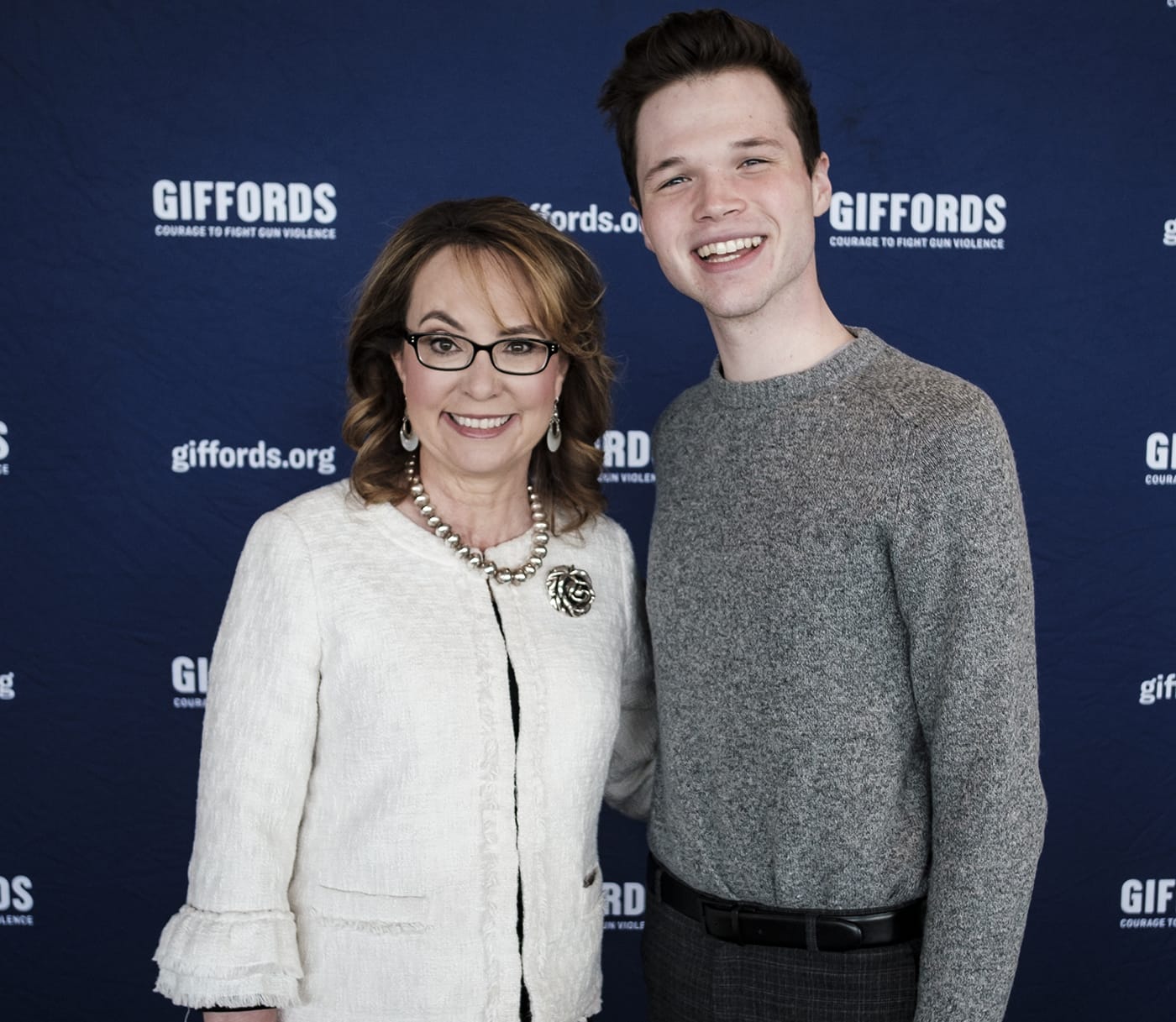
Elijah grew up in Muskegon County, Michigan, which is one of the deadliest urban areas in Michigan. He is an alumnus of the Giffords Courage Fellow program and co-founder of Youth Activism Coalition, which helps students become more politically active. Elijah is a rising freshman at George Mason University, where he also started the campus’s Students Demand Action chapter to organize students to fight for gun safety reform.
“We simply want our policymakers and our so-called leaders to put the lives and safety of ordinary citizens first. The overwhelming majority of Americans, including strong supporters of the Second Amendment like my own family, want common-sense, responsible safeguards that can help minimize gun violence.”
Audrey Wright — Chicago, Illinois
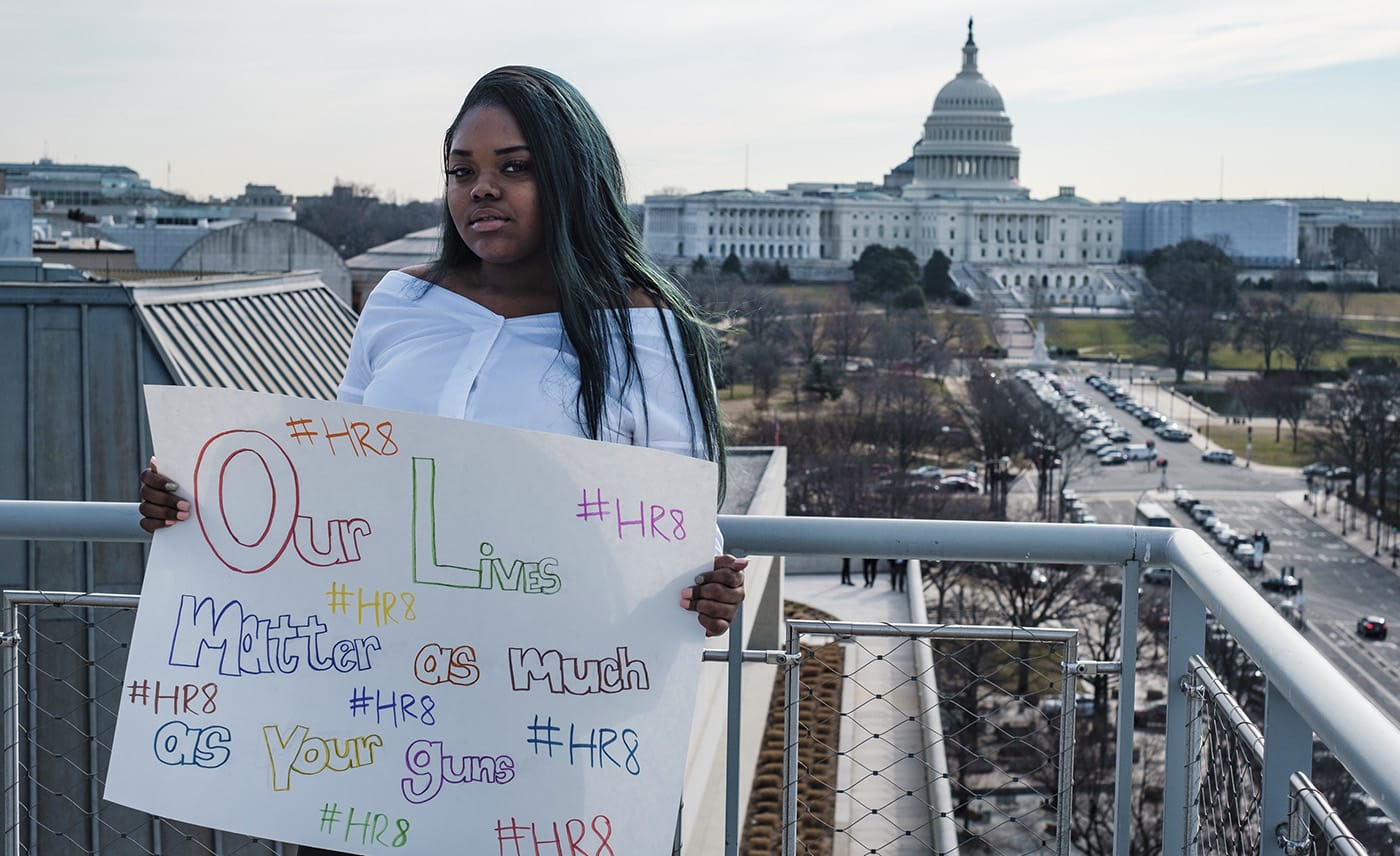
Audrey Wright is a high school student and president of the Peace Warriors, a student-run and Chicago-based group helping lead the national conversation to end gun violence. Through events, press conferences, and local and federal advocacy, Audrey works to ensure that leaders are fighting for solutions—not just for mass shootings that claim the most attention, but also for the everyday gun violence that takes a serious toll on young people in cities nationwide.
“My generation are the ones who either die before we turn 18 or celebrate because we lived to see 18. I am standing in front of those who have the power to change things around for the sake of this nation to tell them that now is the time for change.”
Marcel McClinton — Houston, Texas
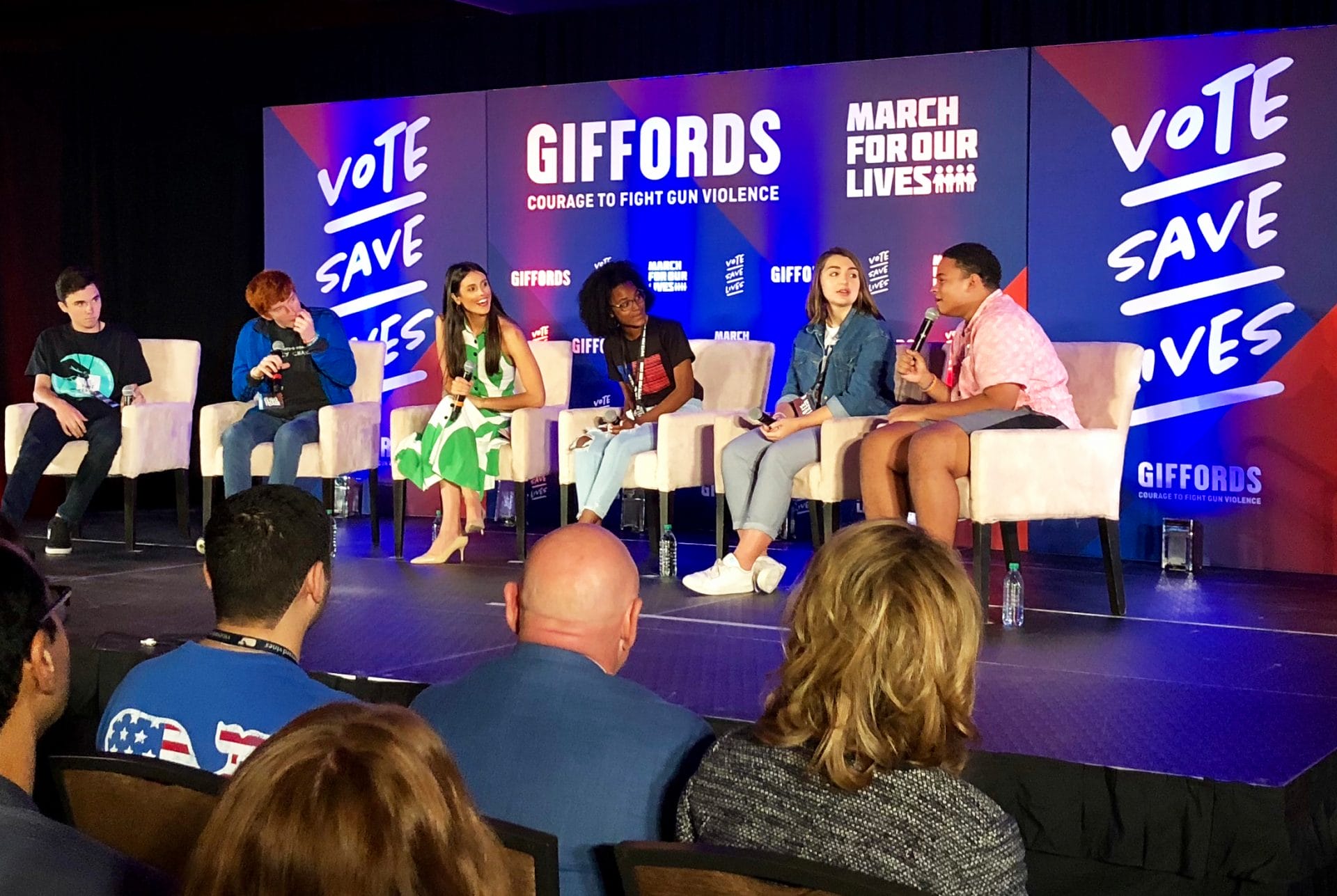
Marcel McClinton survived the Houston church shooting that killed one person and injured six more. Marcel was a co-organizer of the Houston March For Our Lives last year and has been a vocal advocate for gun safety ever since. A high school senior, he is a member of Houston Mayor Sylvester Turner’s Commission Against Gun Violence, and now, a candidate for the Houston City Council.
“The truth is, kids are scared to go to school. This 230 lb. left tackle is scared to go to school, and it’s not because of a bully, it’s because of a gun.” [ SF Gate ]
Lane Murdock — Ridgefield, Connecticut
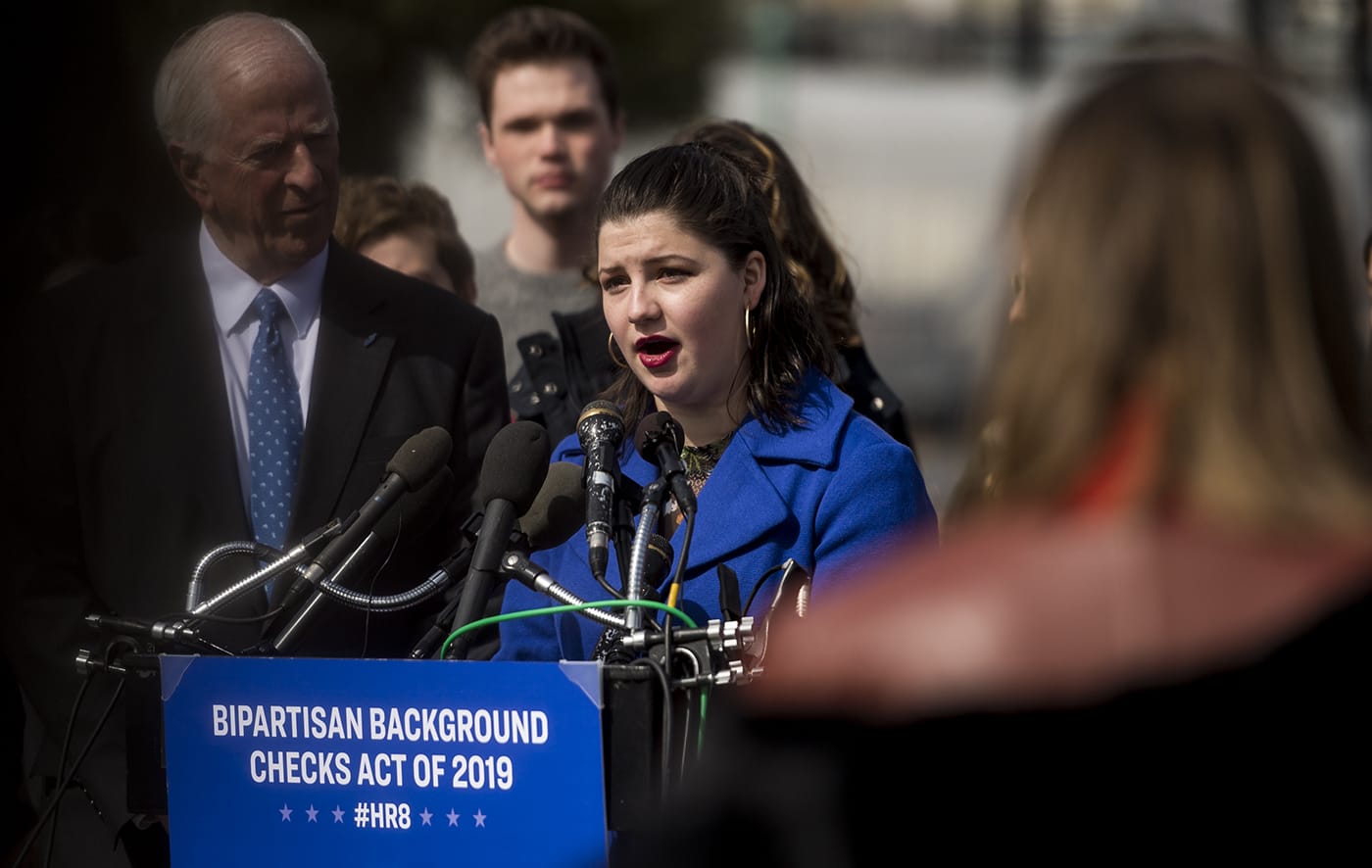
In March 2018, students all across America walked out of school and into the streets to protest inaction on gun violence and demand stronger gun safety laws. It was called the National School Walkout, and it was organized by 16-year-old Lane Murdock. One year later, Lane is a Giffords Courage Fellow alumna and focused on advocating for stronger gun laws alongside other young people.
“If you can’t vote, you don’t have a lot of concrete power. What you have is your attendance in school… and there’s power to that. If we can disrupt the national schedule of kids going to school and draw attention to this issue then that’s a step closer to change.” [ CNN ]